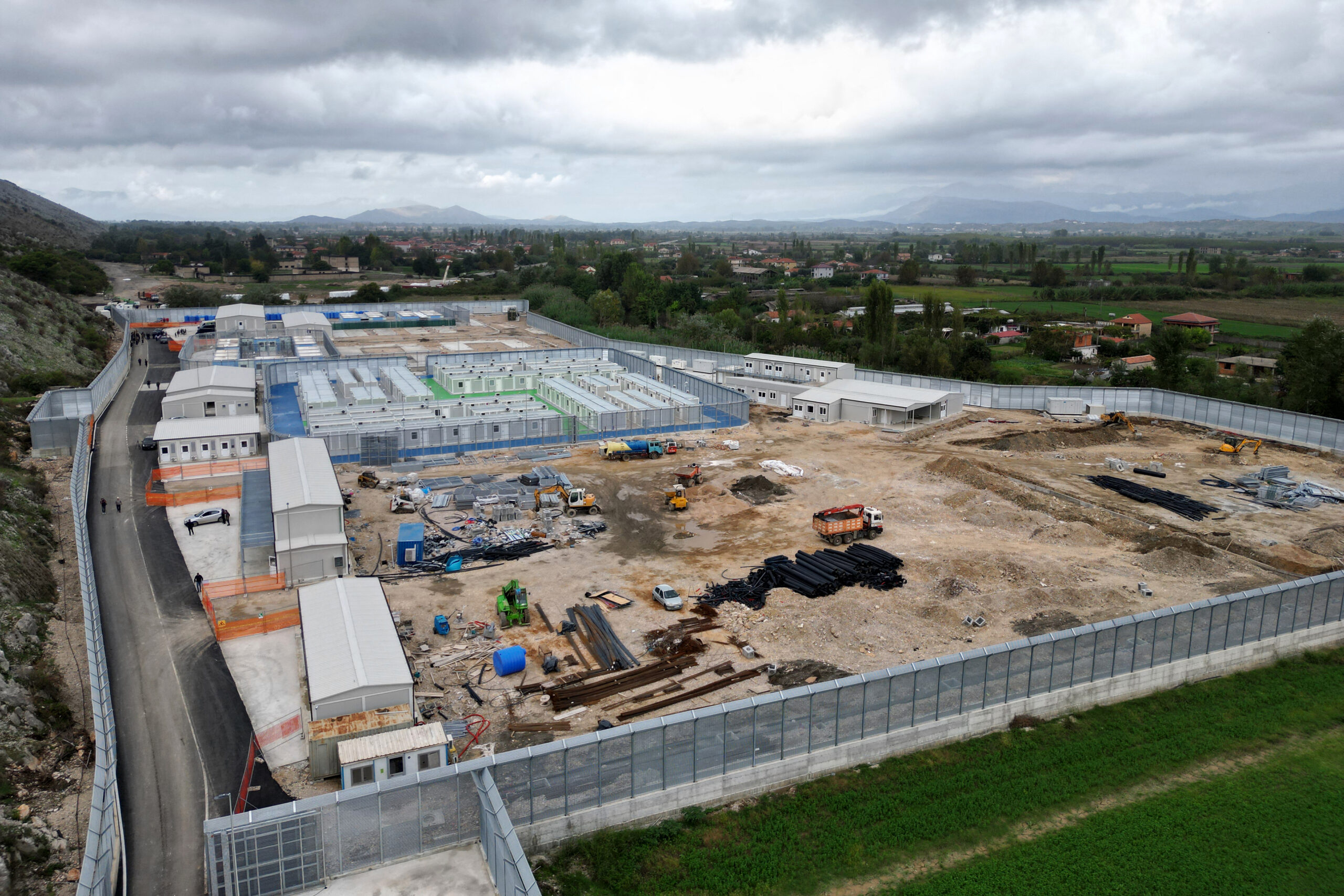Brussels – As in hard prison regime. The picture of the Centres for Repatriation (CPRs) of migrant persons in Italy taken by the European Committee for the Prevention of Torture and Inhuman or Degrading Treatment or Punishment is worrying, to say the least: physical abuse and excessive use of force to quell unrest, administration of non-prescribed psychotropic drugs diluted in water, triple metal nets on windows and cage-like external structures. A treatment “similar to that observed in detention units housing special regime inmates.”
The Committee, which is headed by the Council of Europe, published the report on the visits conducted in April 2024 in four CPRs in Milan, Gradisca, Potenza, and Rome. From these visits, in addition to alleged physical violence by police officers against detained foreign nationals, emerges “the absence of rigorous and independent monitoring of such interventions by the police and the lack of accurate recording of injuries suffered by detainees or assessment of their origin.”
At the Palazzo San Gervasio Cpr in Potenza, where a 19-year-old Algerian boy died in August, the Committee documented “the widespread practice of administering non-prescribed psychotropic drugs diluted in water” to inmates. More generally, the overall “prison environment” is impressive: “The triple wire mesh screens on windows and cage-like outer structures, the poor quality of food provided to inmates, and the lack of stock of toiletries.” The use of riot and intervention teams in the supervision rotation of detainees “is not appropriate,” the report points out. All these elements converge in the disturbing assessment of the Committee for the Prevention of Torture: the conditions of migrants awaiting repatriation in Italy are similar to those of criminals subjected to the hard prison regime.
In fact, foreign nationals are being “warehoused” in the facilities, and the companies that won the contracts for the CPRs have “made only minimal efforts to offer few activities of a purposeful nature,” failing to meet the terms of the tenders. In light of the recent extension from three to eighteen months of the maximum detention period imposed by the Meloni government, the Council of Europe called for “the introduction of a full range of useful activities” for migrant persons.
Not least because, according to the Committee’s analysis, “the high rate of critical events and violence recorded inside CPRs” would be “a direct consequence of the disproportionate security restrictions, the lack of individual risk assessments of foreign nationals, and the fact that detained persons do not have anything to pass their time.” Health and legal care are not saved either: the current system of certification by general practitioners of detention suitability in a CPR “should be reviewed, to ensure that doctors with experience and knowledge of the conditions of a secure environment are involved.” And the “medical screening of detained persons upon entry must be improved,” as well as access to legal safeguards and a lawyer.

The final slap undermines once again the project in which Meloni is determined to invest more than half a billion over five years. “The poor material conditions, the absence of an activity regime, the disproportionate approach to security, the variable quality of health care, and the lack of transparency in the management of the CPRs by private contractors call into question Italy’s application of such a model in an extraterritorial context, such as in Albania,” the report concludes.
To accompany it, the European Committee for the Prevention of Torture published—at the request of Italian authorities—the response in which Rome provides evidence and counter-evidence on the Repatriation Centres management and assurances on the operation of the Shengjin and Gjader identification and detention centres respecting the human rights of migrants, insisting on the measures provided to assess conditions of vulnerability. On the abuse of the administration of psychotropic drugs at the Potenza CPR, Rome assures that “several inspections by health authorities” have been carried out. And the cases of physical mistreatment described in the report “have not been the subject of criminal investigations,” the Italian authorities again reply.
The Permanent Representation of Italy to the Council of Europe explains in a note that the Italian comments attached to the report “provide timely feedback to the critical issues expressed” and “at the same time, show the evolution of national measures to meet the recommendations made, particularly on the system of detention of migrants in the CPRs, and the Italian willingness to continue to work with the CPT on all the points raised.“
English version by the Translation Service of Withub




![Il ministro degli Esteri, Antonio Tajani [Bruxelles, 20 marzo 2025. Foto: Emanuele Bonini per Eunews]](https://www.eunews.it/wp-content/uploads/2025/03/Tajani-250320-350x250.jpg)





